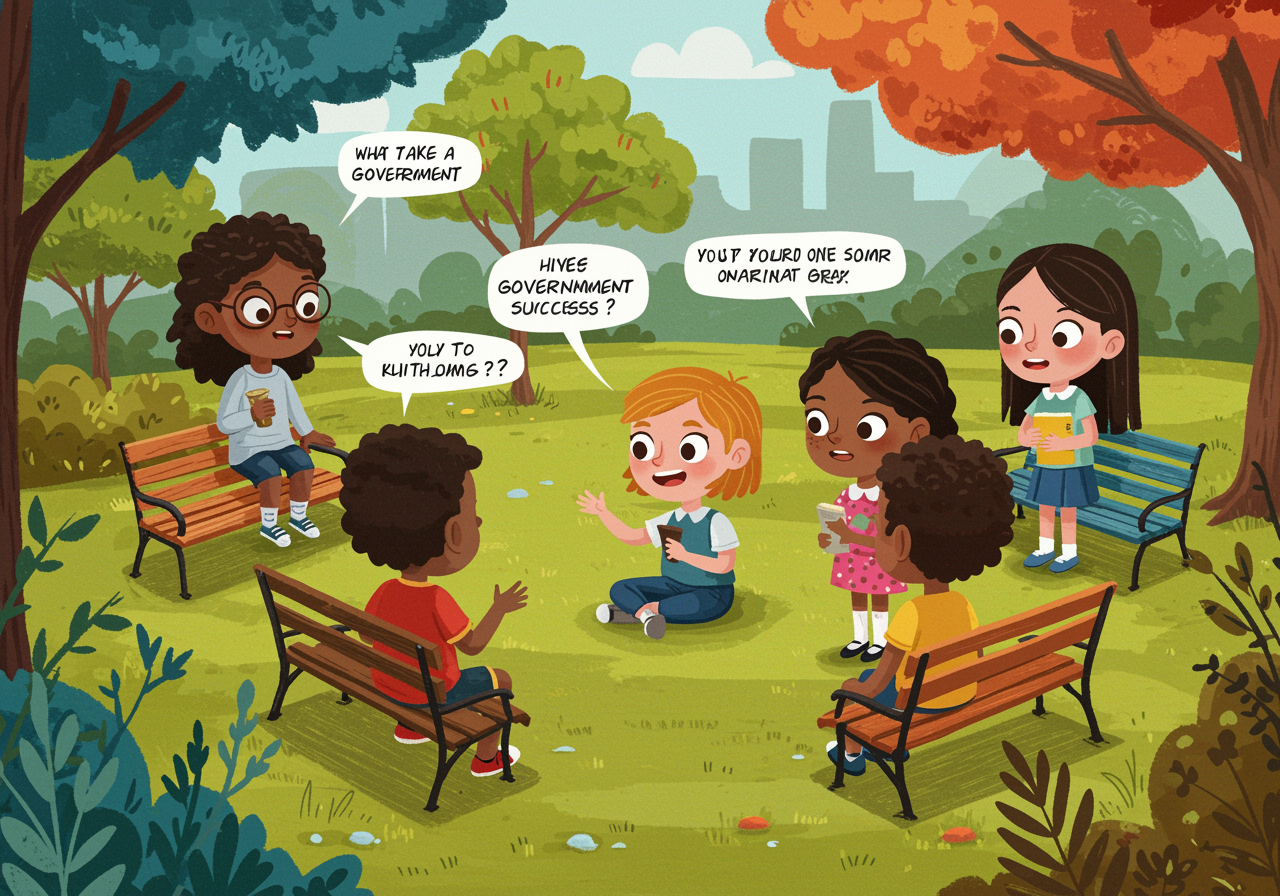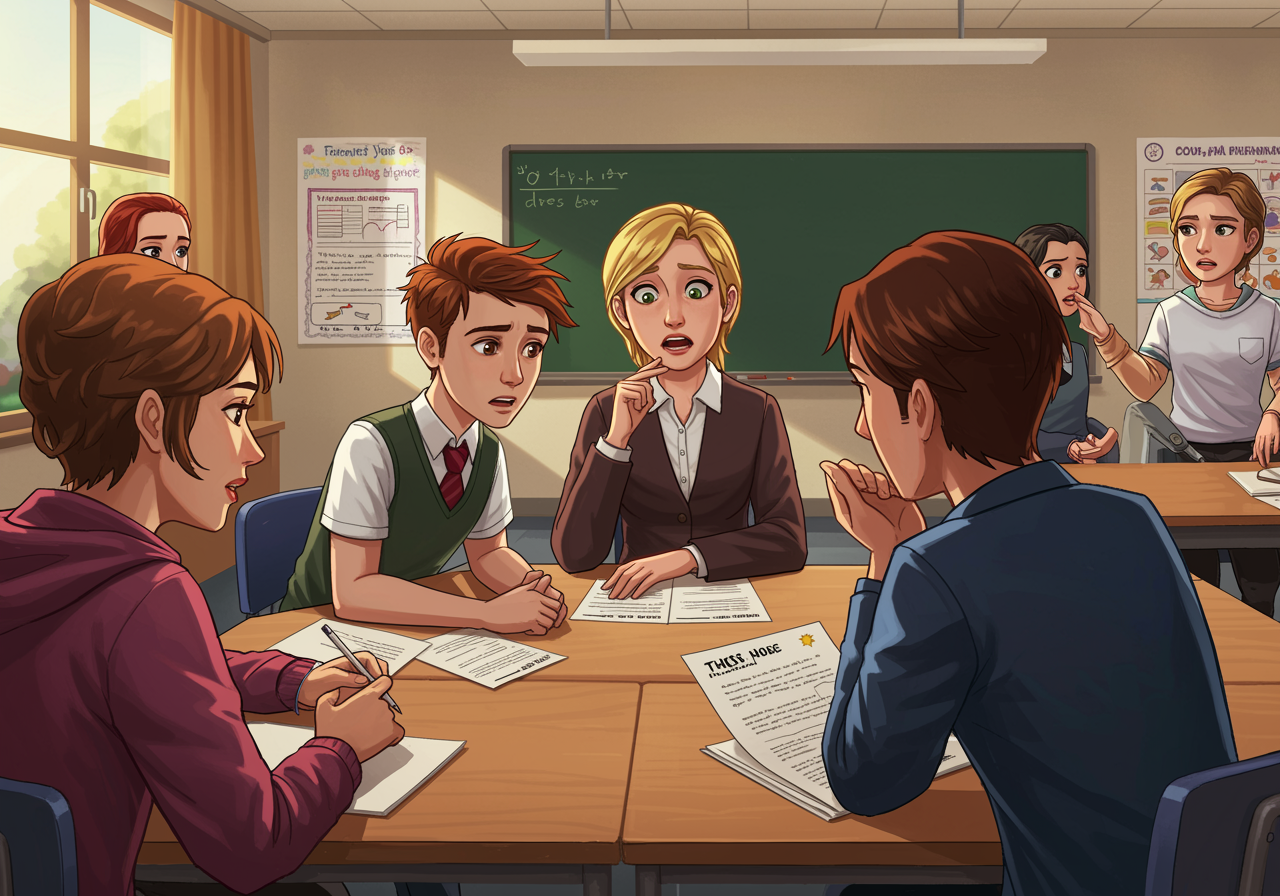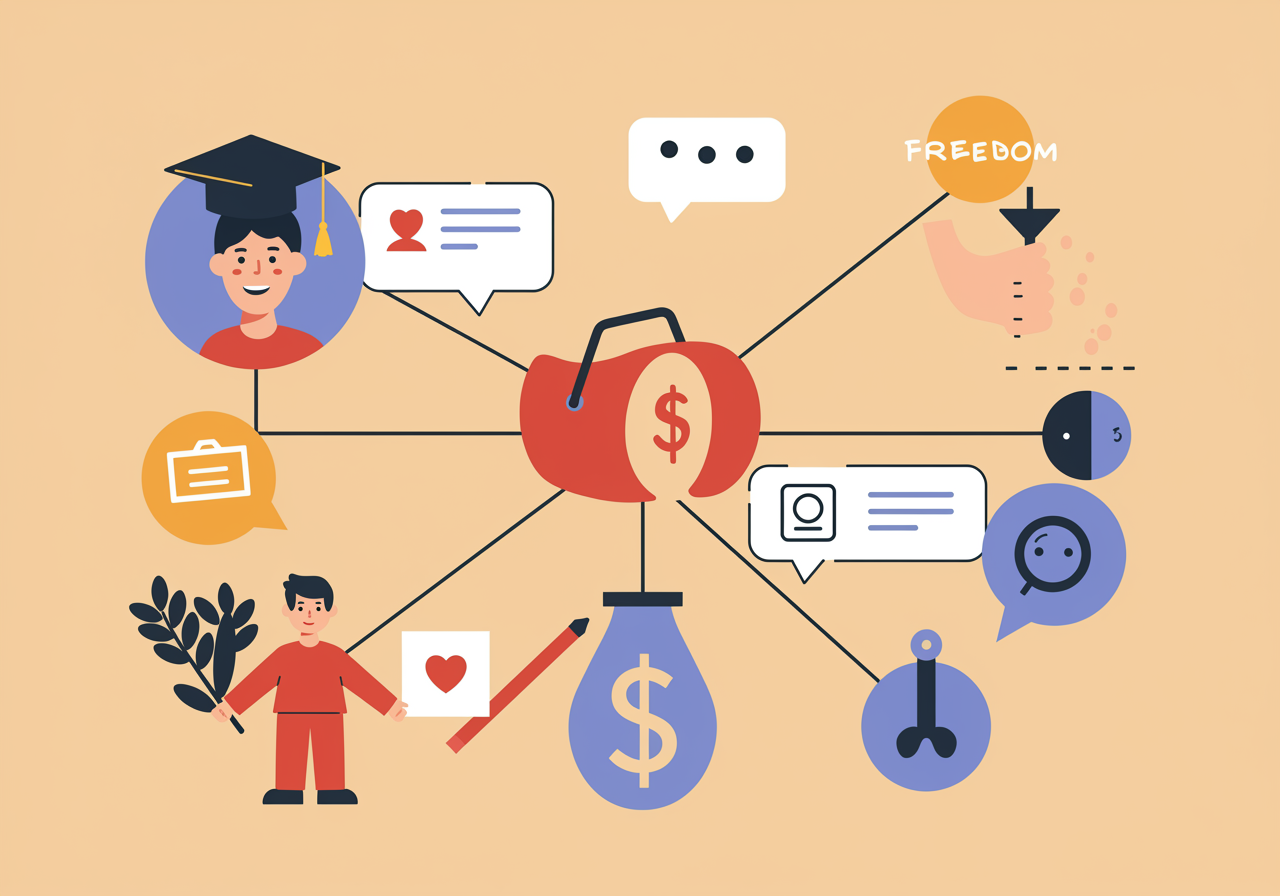Why Can’t Everyone Agree on What Makes Government Great?

Discover why people see success so differently when it comes to running a country
Ever wonder why adults get so heated about politics? Dive into the fascinating world of different values and priorities that shape how people think about government.
Overview
Think about it: even in your family, people probably disagree about what makes a perfect vacation or the best pizza topping. Government is like that, but way bigger! When people have different values—like caring more about safety versus freedom, or helping everyone versus letting people make their own choices—they're going to see government success very differently. Understanding this helps kids become better listeners, critical thinkers, and future citizens who can respect different viewpoints even when they disagree.

Understand in 30 Seconds
Get up to speed quickly
- People Value Different Things: Some folks care most about safety and security, while others prioritize freedom and choice. These different values naturally lead to different ideas about what government should do.
- Success Looks Different to Everyone: One person might think a successful government keeps everyone safe, while another thinks it stays out of people's lives. Both can be right from their own perspective!
- Life Experiences Shape Opinions: Where you grow up, what your family went through, and what challenges you've faced all influence what you think government should prioritize.
- Democracy Means Disagreement: In a healthy democracy, people are supposed to have different opinions and debate them. That's how we figure out the best path forward together.
Real Life Scenario
Situations you can relate to
Imagine your school is planning a new dress code policy. Some students think success means everyone dresses the same so no one feels left out or judged. Others think success means letting everyone express themselves however they want. Some parents worry about kids being distracted, while others worry about limiting creativity. The principal has to balance safety, learning, individual expression, and fairness—sound familiar? That's exactly what happens with government! Everyone wants the 'best' outcome, but they define 'best' differently based on what they value most. What would you prioritize if you were making this decision?

Role Play
Spark a conversation with “what if” scenarios
What if you were designing the perfect school cafeteria rules?
- Role play: One parent plays 'Team Healthy' (success = nutritious food for everyone) while the child plays 'Team Choice' (success = lots of options people actually want to eat). Debate which approach works better and why both have good points.
What if your neighborhood needed new park rules?
- Role play: Take turns being different community members—a parent with young kids (wants safety), a teenager (wants freedom), an elderly person (wants quiet), a dog owner (wants off-leash areas). See how different needs create different definitions of 'success.'
What if you had to decide how to spend your family's money?
- Role play: One person wants to save for emergencies (security), another wants to take a fun vacation (enjoyment), another wants to donate to charity (helping others). Discuss how these are all good values that lead to different 'successful' choices.
FAQs
Frequently asked questions people want to know
Why can't people just agree on what's obviously best?
What seems 'obvious' to you might not be obvious to someone with different experiences or values. That's actually a good thing—it means we consider lots of different perspectives before making big decisions.
Does this mean all political opinions are equally right?
Not exactly. While people can have different values, we can still use facts, evidence, and reasoning to evaluate which approaches work better for achieving specific goals.
How do we make decisions if everyone disagrees?
That's what democracy is for! People vote, representatives debate, and we try to find solutions that work for as many people as possible, even if no one gets everything they want.
Examples in the Wild
See how this works day to day
- During COVID-19, some countries prioritized health safety with strict lockdowns, while others prioritized economic freedom with fewer restrictions. Both had valid concerns. (BBC News COVID-19 Policy Comparisons)
- Nordic countries like Denmark focus heavily on social programs and equality, while countries like Singapore emphasize economic growth and efficiency. Both are considered successful. (World Economic Forum Global Competitiveness Report)
- Some U.S. states prioritize environmental protection with strict regulations, while others prioritize business growth with fewer rules. Voters in each place have chosen what they value most. (Pew Research Center State Policy Surveys)
- New Zealand is praised for both its environmental policies and economic freedom, showing that different approaches can sometimes work together. (OECD Better Life Index)
In Summary
What you should know before you start
- People disagree about government because they value different things—safety vs. freedom, equality vs. individual choice, tradition vs. change
- Life experiences and backgrounds shape what people think government should prioritize
- In democracy, disagreement is normal and healthy—it helps us consider all perspectives before making decisions
- Understanding different viewpoints doesn't mean you can't have your own opinions, but it helps you respect others and think more clearly
Pro-tip for Parents
You got this!
When political topics come up, resist the urge to immediately share your own views. Instead, ask your teen what they think first, then explore the 'why' behind different perspectives together. If they ask about your political beliefs, share them as your personal values rather than absolute truths. This teaches critical thinking while keeping your relationship strong, even if you disagree sometimes.

Keep an Eye Out For
Find these examples in everyday life
- Election coverage that shows candidates with different priorities and approaches to the same problems
- Local government meetings or school board discussions where community members disagree about solutions
- News stories about different countries handling the same challenge (like climate change or economic issues) in different ways
Explore Beyond
Look up these related research topics
- How do people form political opinions and beliefs?
- What's the difference between facts and opinions in politics?
- How do different types of government systems work around the world?